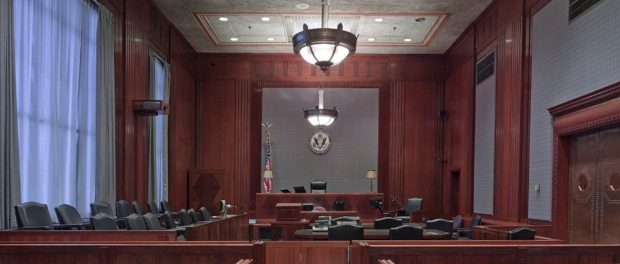Virtual Witness Testimony
 The Court of Appeals of North Carolina affirmed the Superior Court decision in a May 7, 2024 ruling. Various complaints were filed with the North Carolina Licensing Board for General Contractors (Board) regarding Petitioners’ alleged violations of the Practice Act, including “gross negligence, incompetency and/or misconduct in the practice of general contracting in violation of N.C. Gen. Stat. § 87-11(a).” Petitioners included Gabbidon Builders, LLC, Gabbidon Construction, LLC, and Leonard Gabbidon, aka qualifying party for the other Petitioners.
The Court of Appeals of North Carolina affirmed the Superior Court decision in a May 7, 2024 ruling. Various complaints were filed with the North Carolina Licensing Board for General Contractors (Board) regarding Petitioners’ alleged violations of the Practice Act, including “gross negligence, incompetency and/or misconduct in the practice of general contracting in violation of N.C. Gen. Stat. § 87-11(a).” Petitioners included Gabbidon Builders, LLC, Gabbidon Construction, LLC, and Leonard Gabbidon, aka qualifying party for the other Petitioners.
Here, the Board scheduled one hearing for the matters and subpoenaed multiple witnesses. Upon notification to Petitioners that several witnesses would need to attend virtually, Petitioners moved to exclude the virtual testimony, which motions were denied by the Board. Upon conclusion of the hearing, the Board entered its final decisions that (1) revoked the licenses of Petitioners Gabbidon Builders, LLC, and Gabbidon Construction, LLC; (2) revoked Petitioner Leonard Gabbidon’s ability to act as a qualifying party for an applicant for a license to practice general contracting; and (3) assessed costs of $30,000 against Petitioners in each matter.
Petitioners filed petitions for review, still arguing to exclude virtual testimony of the witnesses and with the Superior Court. The Superior Court also affirmed the Board Order, leading to this timely appeal. Appellant argued the Superior Court and Board had committed reversible error by “allowing the virtual testimony of witnesses who failed to comply with the subpoenas” and required the de novo standard of review given their assertions were only errors of law. For a de novo review, the “Court considered the matter anew and freely substitutes its own judgment for that of the lower tribunal.” (See, Herron v. N.C. Bd. of Exam’rs for Eng’rs & Surveyors, 248 N.C.App. 158, 165, 790 S.E.2d 321, 327 (2016)) Petitioners specifically argued that the Board deprived them of due process by allowing virtual testimony.
The key determinant of a due process claim is notice and the opportunity to be heard “at a meaningful time and in a meaningful manner.” (Peace v. Emp. Sec. Comm’n, 349 N.C.
315, 322, 507 S.E.2d 272, 278 (1998)). The Superior Court properly recognized that “there are no procedures for virtual testimony, the Board’s regulations and Rule 45 neither provide for nor prohibit witnesses from testifying virtually.” Given the Petitioners had notice and had the opportunity to cross-examine each of the witnesses who appeared virtually, the Board complied with statutory requirements for proper notice and an opportunity for Hearing. Notably, the Petitioners could have also subpoenaed these witnesses if they were so reliant on in-person testimony.
Affirmed the Superior Court’s ruling and affirms the final decisions of the Board and suspension of the licenses.

